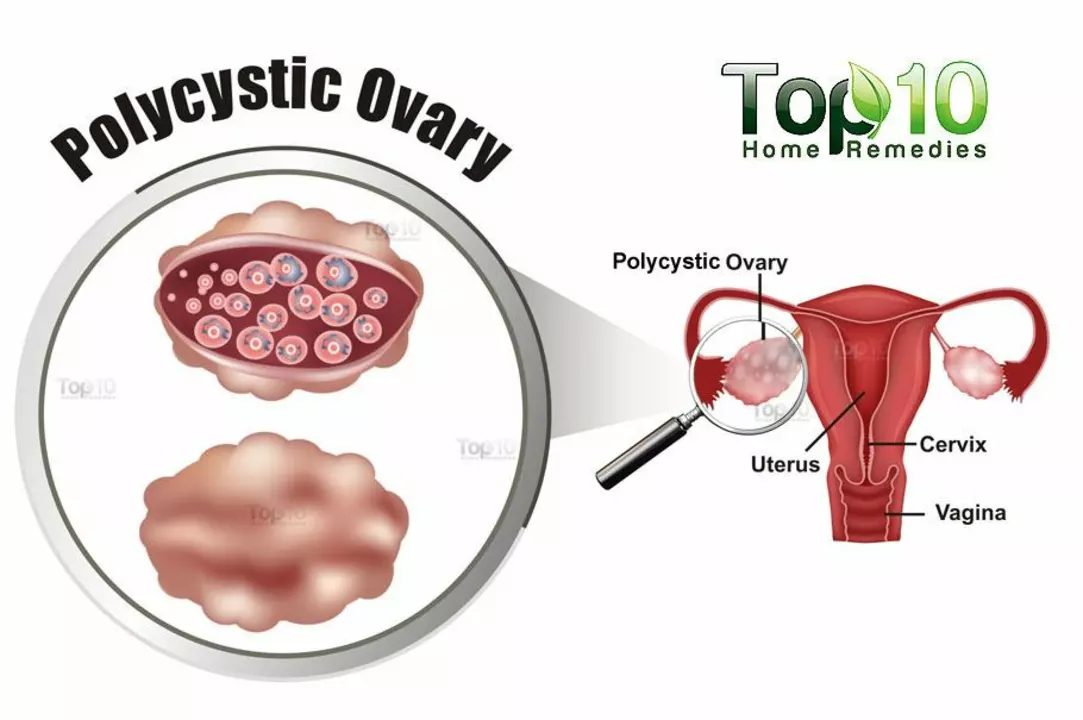The Relationship Between Fertility and Polycystic Ovary Syndrome (PCOS)
 Jun, 2 2023
Jun, 2 2023
Understanding Polycystic Ovary Syndrome (PCOS)
As someone who has experienced the challenges of living with Polycystic Ovary Syndrome (PCOS), I know firsthand how this condition can impact a woman's fertility. PCOS is a hormonal disorder that affects 1 in 10 women of childbearing age. It is characterized by enlarged ovaries containing multiple small cysts, irregular periods, and elevated levels of male hormones (androgens).
In this article, I'll discuss the relationship between fertility and PCOS, and how understanding the connection between them can help women with this condition to make informed decisions about their reproductive health.
How PCOS Impacts Fertility
One of the primary reasons PCOS affects a woman's fertility is due to the hormonal imbalances it causes. These imbalances can interfere with the normal ovulation process, which is crucial for conception. Women with PCOS often experience infrequent or absent ovulation, making it difficult to predict when they are most fertile.
Additionally, elevated levels of male hormones can lead to other symptoms, such as excessive hair growth and acne, which can also impact a woman's self-esteem and overall wellbeing. This can indirectly affect fertility by causing emotional stress and reducing the desire for intimacy.
Managing PCOS Symptoms to Improve Fertility
If you have PCOS and are trying to conceive, it's essential to manage your symptoms to improve your chances of getting pregnant. Lifestyle changes, such as maintaining a healthy weight, eating a balanced diet, and exercising regularly, can help regulate hormonal imbalances and promote regular ovulation.
Medical treatments, such as hormonal therapy or fertility medications, may also be recommended to help balance hormone levels and stimulate ovulation. It's important to consult with your healthcare provider to determine the best course of action for your specific situation.
The Role of Insulin Resistance in PCOS and Fertility
Many women with PCOS also have insulin resistance, a condition where the body's cells do not respond properly to insulin, leading to high blood sugar levels. Insulin resistance can contribute to hormonal imbalances and further exacerbate PCOS symptoms, ultimately affecting fertility.
Managing insulin resistance through dietary changes, regular exercise, and medications (such as Metformin) can help improve hormonal balance and increase the chances of regular ovulation. Speak with your healthcare provider about the best way to address insulin resistance if you have PCOS and are trying to conceive.
Assisted Reproductive Technologies (ART) for Women with PCOS
For some women with PCOS, assisted reproductive technologies (ART) may be necessary to help them achieve pregnancy. Intrauterine insemination (IUI) and in vitro fertilization (IVF) are two common ART methods that can be beneficial for women with PCOS.
IUI involves the placement of sperm directly into the uterus to facilitate fertilization, while IVF involves combining sperm and eggs outside of the body and subsequently transferring the resulting embryo(s) to the uterus. Both of these methods can increase the chances of conception for women with PCOS, but it's important to discuss the risks and benefits with your healthcare provider before pursuing these treatments.
Emotional Support for Women with PCOS
Dealing with the fertility challenges associated with PCOS can be emotionally draining. It's crucial for women with this condition to seek support from friends, family, and healthcare providers, as well as to connect with others who share similar experiences.
Online forums, support groups, and social media platforms can be excellent resources for finding a community of individuals who understand the unique challenges of living with PCOS. Remember, you are not alone in your journey, and there are many people out there who can offer valuable advice, encouragement, and understanding.
Conclusion
In conclusion, the relationship between fertility and Polycystic Ovary Syndrome (PCOS) is complex and multifaceted. By understanding the hormonal imbalances and other factors that contribute to this condition, women with PCOS can take the necessary steps to manage their symptoms and improve their chances of conception.
It's important to remember that every woman's experience with PCOS is different, and the journey to parenthood may be different for each individual. By seeking proper medical care, making necessary lifestyle changes, and finding emotional support, women with PCOS can overcome the fertility challenges associated with this condition and achieve their dreams of becoming mothers.

Denise Wood
June 2, 2023 AT 21:46Andrew Butler
June 4, 2023 AT 18:05Varun Gupta
June 6, 2023 AT 08:08Amy Reynal
June 6, 2023 AT 16:15Erick Horn
June 8, 2023 AT 08:08Lidia Hertel
June 8, 2023 AT 08:37Chris Bock
June 9, 2023 AT 12:02Alyson Knisel
June 11, 2023 AT 04:34Jelisa Cameron- Humphrey
June 12, 2023 AT 16:09Lee Lach
June 14, 2023 AT 03:19Tracy McKee
June 14, 2023 AT 18:58Abigail M. Bautista
June 16, 2023 AT 16:12Rohan Puri
June 17, 2023 AT 01:01Mandeep Singh
June 18, 2023 AT 08:44Chris Bellante
June 19, 2023 AT 20:35Nicole Manlapaz
June 20, 2023 AT 06:41